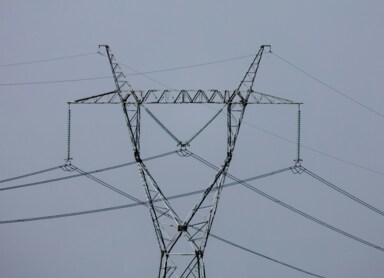Green Collar Workers – What’s New in the Job Market?
The term “green collar” refers to a new category of workers who not only contribute to environmental protection but also represent an important part of the modern economy. In this article, we will discuss what green collar workers are, how they impact the economy, and what prospects await those working in this sector.
Green Collar Workers – A New Trend in the Job Market
Amid growing environmental awareness and climate change, the job market is undergoing dynamic transformation. More and more companies and institutions are adapting their business models to meet the requirements of sustainable development, resulting in increased demand for specialists in ecology and green technologies.
Green Collar – What Does It Mean and How Does It Impact the Economy?
The term “green collar” refers to a group of workers whose professions are directly linked to ecology and environmental protection. This concept is increasingly used in the context of dynamic changes occurring in the labor market due to rising ecological awareness and global climate challenges.
Green collar workers are employed in sectors such as renewable energy, recycling, organic farming, sustainable construction, and natural resource management. Their work helps reduce the carbon footprint, improve energy efficiency, and implement modern, eco-friendly technologies.
The Role of Green Collar Workers in Socio-Economic Transformation
The growing demand for environmental specialists is making green technology professions increasingly significant. The impact of green jobs on the economy can be divided into several key areas:
-
Creation of new jobs – The ecological sector generates thousands of new jobs worldwide. The development of renewable energy sources and ecological infrastructure contributes to the emergence of new professions.
-
Technological innovations – Companies investing in green technologies drive scientific and technological progress, enhancing the economy's competitiveness.
-
Reducing negative environmental impact – Green jobs help cut greenhouse gas emissions and promote the circular economy.
-
Sustainable development – By promoting eco-friendly solutions, green collar workers support the creation of sustainable economic models that contribute to long-term growth.
Green sector workers have a huge impact on reducing the negative effects of human activity on nature. Their actions include:
-
reducing greenhouse gas emissions,
-
promoting alternative energy sources,
-
improving energy efficiency in buildings,
-
reducing waste and enhancing recycling management,
-
protecting biodiversity and ecosystems.
Career Prospects in Environmental Professions
Currently, the job market is seeing a growing demand for specialists in environmental protection. The most popular professions include:
-
Renewable energy specialist – designs and implements installations based on renewable energy sources, such as solar panels or wind turbines.
-
Recycling and waste management expert – optimizes recycling processes and reduces the amount of waste generated.
-
Sustainable architecture specialist – designs eco-friendly, low-energy buildings.
-
Environmental engineer – develops innovative solutions to reduce water, air, and soil pollution.
-
Agroecologist – focuses on organic farming methods.
The Future of Green Collar Jobs
Experts predict that the number of green jobs will continue to grow in the coming years. Governments worldwide are investing in green technologies and introducing regulations that promote ecological development. This sector is becoming a key element of the modern economy, providing new career opportunities while supporting environmental protection.
If you are considering a job that combines financial stability with contributing to the planet, green collar professions might be the ideal choice.







